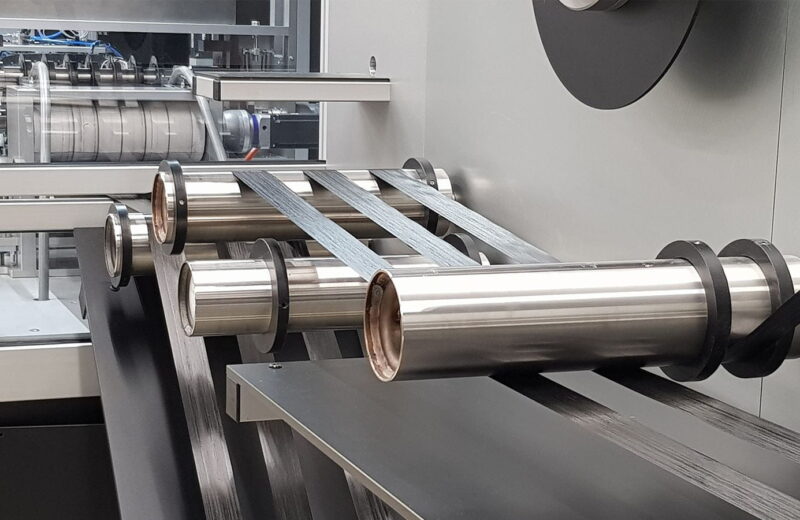Collins Aerospace to lead thermoplastics development for liquid hydrogen tanks

Part of the thermoplastics manufacturing process known as slitting. (credit: Collins Aerospace)
Collins Aerospace, under the Clean Hydrogen Joint Undertaking, is to lead development of new thermoplastics technology for liquid hydrogen tanks on aircraft.
The Collins-led consortium will bring together company sites across France, Italy, UK, Poland, the Netherlands, US and Ireland along with NLR, Delft University of Technology, ATR, Novotech, and Unified International. The project is known as COCOLIH2T.
Liquid hydrogen has a lower specific density than jet fuel, which means it requires nearly four times as much volume to match the energy content of the same mass of Jet-A. Thermoplastic composites are materials known for durability and “unique manufacturing characteristics”. The material is lightweight, suitable for extreme temperatures and has the capacity to be recycled. This project hopes to result in a 60% reduction in production energy consumption and at least 50% in production time.
Mary Lombardo, vice president, Advanced Technologies at Collins Aerospace, said the project addresses the challenges of shifting from traditional jet fuel to clean burning hydrogen fuel. “Compared with traditional fuel tanks, hydrogen tanks must reduce weight and enable containment of cryogenic fluid. COCOLIH2T is the kind of aerospace industry cross-collaboration Collins is focused on to reduce the environmental impact of aviation and lead us to a sustainable future,” she said.
Late last year, the firm announced it was taking part in seven projects under the Clean Hydrogen Joint Undertaking. Collins estimates that the funding it receives from Clean Aviation combined with its own R&D will reach €85m ($88.3m). Also, included in the projects is research into hybrid-electric aircraft such as HE-ART (Hybrid-Electric propulsion system for regional AiRcrafT) and TheMa4HERA (Thermal Management for Hybrid-Electric Regional Aircraft).
Meanwhile, Collins revealed it is designing and building the sidestick control system for the Lilium Jet. Jean-François Chanut, vice president and general manager of Collins Aerospace Propeller Systems, said the firm’s experience innovating sidestick design is key when tackling the challenges of redefining the entire flight control philosophy for single-pilot aircraft. “This innovating and exciting partnership with Lilium is a first step in defining the right solutions towards more automated, sustainable and safe operations for the future of flight,” he said.






